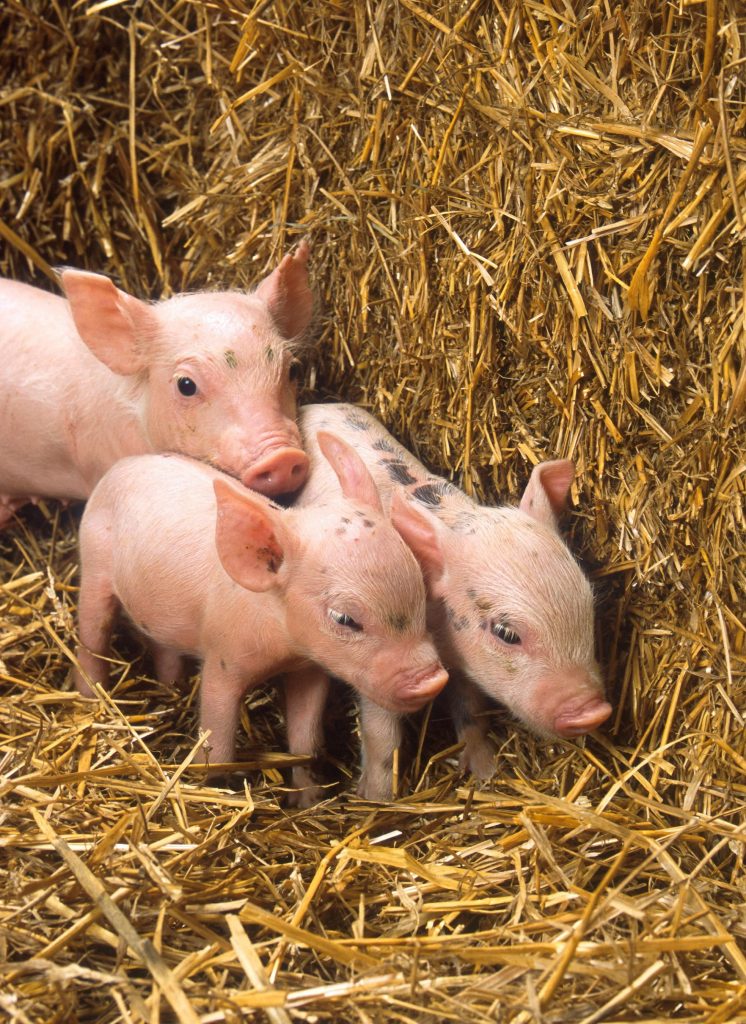
Every five years or so, Congress debates and passes a Farm Bill that will steer the course of farm, food, rural, nutrition, and agricultural policies in this country for half a decade. If you live in the United States, the Farm Bill impacts you. The year 2023 is a Farm Bill year. And animal advocates should pay attention.
Farm Bill 101: The farm bill is comprehensive legislation that governs food, agriculture, rural development, nutrition, economic policy and programs. “It provides an opportunity for policymakers to comprehensively and periodically address agricultural and food issues. … Farm bills traditionally have focused on farm commodity program support for a handful of staple commodities— corn, soybeans, wheat, cotton, rice, peanuts, dairy, and sugar. Farm bills have become increasingly expansive in nature since 1973, when a nutrition title was first included. Other prominent additions since then include horticulture and bioenergy titles and expansion of conservation, research, and rural development titles.”[1]
The challenge: the Farm Bill gives the most subsidies to the richest and biggest players in the industrial agriculture sector[2] where a handful of large corporations control the industry[3]; and where animals are kept in intense confinement and unable to engage in normal behaviors. The most highly subsidized crops are those that provide feed for these animals impacting both animal welfare and human nutrition.
The opportunity: the Farm Bill encompasses a wide and growing range of policies that encourage a more compassionate, just, and fair food system. There is a robust and active movement of organizations and coalitions advocating for such a change in the 2023 Farm Bill. They advocate for small farmers, sustainable agriculture, better nutrition, and increasing resources for rural communities. We do support all these efforts.
Our contribution as animal advocates can be to join them and bring animal welfare issues to the forefront. It is a natural partnership and an important opportunity. We often talk about being the voice for animals. Here is a chance to put our words into action.
The Impact on Animal Welfare: funding that is disproportionately tilted toward industrial agriculture and subsidies that favor crops used for animal feed rather than food, are all part of the system that supports CAFOs (Concentrated Animal Feeding Operations). The billions of animals each year who are part of this system are kept in intense confinement, subjected to separation from their young, lack proper veterinary care, and are unable to express their natural behaviors.
Call to Action:
Call your two U.S. Senators and your U.S. Congressperson. Find their contact information here [link]. Tell them your priority is improved animal welfare in addition to benefits for people, the environment, and rural communities; that as the 2023 Farm Bill begins to take shape, you want your elected official to ensure that animal welfare concerns are included, by:
- Increasing accountability for large industrial agricultural corporations.
- Ending government investment in the factory farm model, both subsidies and direct funding
- Enacting strong oversight measures for industrial animal welfare and transparency
We’ll be providing other actions you can take in the upcoming months. In the meantime, please check to see if either of your Senators or your Congressperson sits on the Agriculture Committees [link to Senate and to House Committees]. Note to Michigan residents: Sen. Debbie Stabenow chairs the Senate Agriculture Committee. If so, we’ll be calling on you in future months with specific “asks”.
Americans care about farmed animal welfare.[4] Let’s put animals and their welfare into the Farm Bill.
[1] https://crsreports.congress.gov/product/pdf/IF/IF12047#:~:text=The%20farm%20bill%20is%20an,address%20agricultural%20and%20food%20issues
[2] https://sentientmedia.org/why-are-farmers-subsidized/ , “[i]n 2019, the wealthiest 1 percent of farm operations received nearly one-quarter of the USDA’s total subsidies. The richest 10 percent received nearly two-thirds.”
[3] https://civileats.com/2023/02/08/the-field-report-farm-bill-negotiations-debate-snap-nutrition-conservation-insurance-cory-booker-rural-america-farm-action-consolidation/ “Huffman and other speakers pointed to the problematic nature of farm bill funds that flow almost entirely to growers of corn, soybeans, and other commodities through commodity and crop insurance programs. Currently, about 40 percent of U.S. corn and more than 70 percent of soybeans are turned into feed for animals raised in concentrated animal feeding operations (CAFOs). Because a handful of global corporations control the country’s meat industry, members of the coalition argue that the funding is effectively padding corporate profits while driving small farms out of business and supporting animal suffering and pollution caused by CAFOs.”
[4] https://www.aspca.org/sites/default/files/impact_on_public_attitudes_toward_industrial_animal_agriculture-final-111120.pdf. See also “Consumer Perceptions of Farm Animal Welfare,” Animal Welfare Institute (2019), https://awionline.org/sites/default/files/uploads/documents/fa-consumer_perceptionsoffarmwelfare_-112511.pdf. Both are consistent with a growing concern world-wide about welfare of animals in industrial agriculture, https://www.ncbi.nlm.nih.gov/pmc/articles/PMC7143148/
